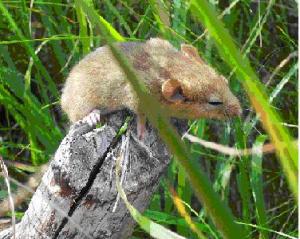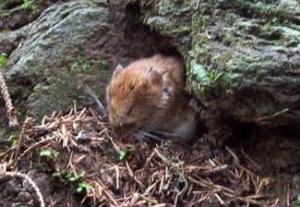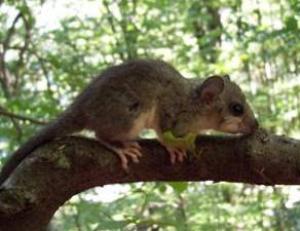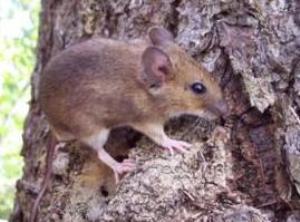Alina Eva Szabo
This project investigates biodiversity in private forests adjacent to the Rodna Mountains National Park (PNMR)

Muscardinus avellanarius - Common Dormouse, a species that is affected by woodland management.
Following restitution, almost half of the forests in Romania have been transferred into private ownership (communal or individual). These forests host biodiversity of great European and global value and there is a perceived threat that restitution will lead to deforestation and forest degradation.

Bank Vole.
The team selected Rodna Mountains for this project because of their importance for biodiversity, demonstrated by the creation here of a national park and a UNESCO biosphere reserve. However, this area registers tremendous pressures on natural resources largely due to economic hardship experienced by local people. Hence, it is essential to include forests surrounding the park in a strategy for biodiversity conservation and there is scope for such a project combining research and work to promote biodiversity conservation with efforts to find sustainable income alternatives that could improve local livelihoods.

Edible Dormouse.
This project has three aims: first, to investigate biodiversity in private forests adjacent to the Rodna Mountains National Park (PNMR) and compare it with results found within protected forests, and assess, to the extent possible, the impact of various tree harvesting techniques on species distribution and abundance (with a particular emphasis on small mammals, insects and plants); second, to employ environmental education in a participatory way; and third, to work with peasant forest owners to develop strategies (including agro/eco-tourism) that could improve their income without relying on current methods of tree cutting.

Wood Mouse.
For this purpose, the team will: review ecological literature and relevant legislation; select one community adjacent to the national park; carry out ecological surveys and monitoring with local students; conduct questionnaire surveys of peasant forest owners and work with them on designing an income strategy; and document methods and outcomes to facilitate their later use by the park authority and the local communities.